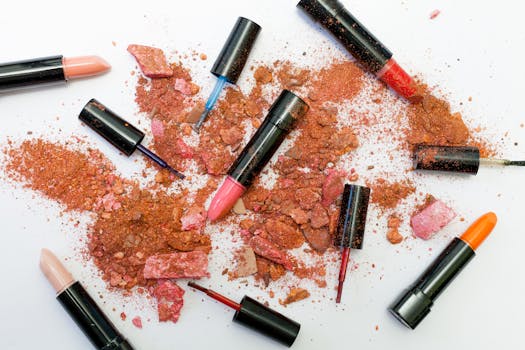The Shelf Life of Cosmetics: What Happens If You Use Expired Products
Cosmetics are an integral part of many people’s daily routines, enhancing beauty and boosting confidence. However, like all products, cosmetics have a shelf life, and using them beyond their expiration date can lead to various issues. Understanding the shelf life of cosmetics and the potential consequences of using expired products is crucial for maintaining skin health and safety.
Understanding Cosmetic Shelf Life
The shelf life of cosmetics refers to the period during which a product remains effective and safe to use. This duration can vary significantly depending on the type of product, its ingredients, and how it is stored. Generally, cosmetics can be categorized into two main types:
- Unopened Products: These typically have a longer shelf life, often lasting several years if stored properly.
- Opened Products: Once opened, cosmetics are exposed to air, light, and bacteria, which can shorten their lifespan. Most opened products last between 6 months to 2 years.
Manufacturers often provide a Period After Opening (PAO) symbol on the packaging, indicating how long the product is safe to use after it has been opened. For example, a jar with a symbol showing “12M” means the product is safe for 12 months after opening.
What Happens When You Use Expired Cosmetics?
Using expired cosmetics can lead to several adverse effects, ranging from minor irritations to serious skin issues. Here are some potential consequences:
- Skin Irritation: Expired products may cause redness, itching, or rashes due to the breakdown of ingredients.
- Infections: Bacteria can proliferate in expired cosmetics, especially in products like mascara and liquid eyeliners, leading to eye infections.
- Allergic Reactions: Ingredients can change over time, potentially triggering allergic reactions in users who were previously unaffected.
- Reduced Effectiveness: Active ingredients in skincare products, such as retinol or SPF, may lose their potency, rendering the product ineffective.
Real-Life Examples and Case Studies
Several case studies highlight the risks associated with using expired cosmetics. For instance, a study published in the Journal of Cosmetic Dermatology found that using expired sunscreen can lead to severe sunburns, as the active ingredients degrade over time. In another case, a woman developed a severe eye infection after using an old tube of mascara, which had been opened for over two years.
Statistics also reveal concerning trends. According to a survey by the American Academy of Dermatology, nearly 60% of women reported using expired makeup products, with many unaware of the potential risks. This highlights the need for increased awareness regarding cosmetic expiration dates.
How to Properly Store Cosmetics
Proper storage can significantly extend the shelf life of cosmetics. Here are some tips to ensure your products remain safe and effective:
- Keep Products in a Cool, Dry Place: Avoid storing cosmetics in humid areas like bathrooms, as moisture can promote bacterial growth.
- Avoid Direct Sunlight: UV rays can degrade ingredients, so store products in a dark place or opaque containers.
- Seal Containers Tightly: Ensure that lids are closed properly to minimize air exposure.
- Use Clean Tools: Always use clean brushes or applicators to prevent contamination.
Conclusion
Understanding the shelf life of cosmetics and the risks associated with using expired products is essential for maintaining skin health and safety. With potential consequences ranging from skin irritation to infections, it is crucial to pay attention to expiration dates and storage conditions. By following proper storage practices and being mindful of the PAO symbols, consumers can enjoy their cosmetics safely and effectively. Remember, when in doubt, it’s always better to err on the side of caution and replace expired products to protect your skin.
